Professor Sir Jonathan Van-Tam, England’s deputy chief medical officer during the pandemic, is giving evidence to the Covid-19 Inquiry this afternoon.
Sir Jonathan has spoken of the impact his role had on his family – he described receiving threats that they would have their “throats cut” during the height of the pandemic. He also said he was “absolutely not” consulted about the Eat Out to Help Out scheme before it was launched.
His evidence comes after chief medical officer Sir Chris Whitty said that pursuing a policy of herd immunity in March 2020 was a “ridiculous goal” and “very dangerous”.
Follow i‘s live blog for updates as they occur.
Thank you for following
We are going to leave this blog here for today – here’s what’s been happening:
- England’s Chief Medical Officer Professor Sir Chris Whitty continued his evidence for the Covid inquiry, following a full day session on Tuesday.
- He told the inquiry he is not convinced that “all parts of the Downing Street machinery” was “seized of the urgency” of action against coronavirus in early March 2020.
- There were communication errors around the idea of herd immunity, which upset and confused the public, he also said. He described the debate on herd immunity during the pandemic as “a clearly ridiculous goal of policy” and “very dangerous”.
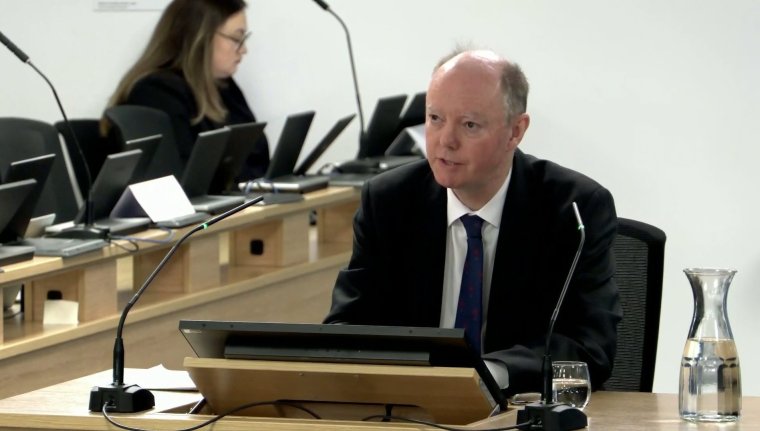
- Sir Chris said that the weekend before the first lockdown was implemented on 23 March, 2020, the UK was already in “deep trouble” and could not afford to wait to see if earlier measures would bring the R number for the rate of infection below 1.
- Sir Chris said he, along with other scientific advisers to the government, were not consulted on Rishi Sunak’s Eat Out to Help Out scheme.
- He also said the messaging app WhatsApp was “an appalling mechanism” for discussing technical issues.
- His then-deputy, Professor Sir Jonathan Van-Tam, then took the stand. He spoke about the “extremely hateful messages” he received during the Covid-19 pandemic including threats to his family about “having their throats cut”.
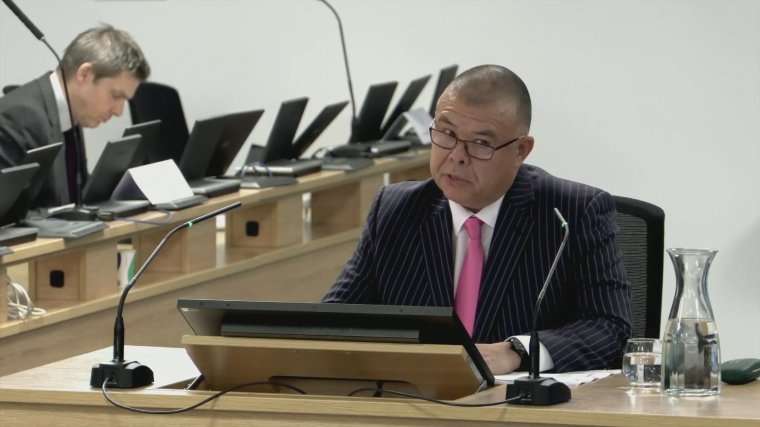
- Lockdown should have happened “seven to 14” days earlier, he said, while Sir Chris said it should have come in “a few” days earlier.
- The NHS would have “inevitably been broken” if Covid-19 infections continued at the same rate during the early months of the pandemic, he added.
- He said he signed a letter to the Cabinet Secretary warning of the risks of reopening the country after the first national lockdown to “leave a mark in the sand”.
- Sir Jonathan criticised the tier system of restrictions across different parts of the country during the pandemic, saying “it did not serve us well”.
- He said he first learned about the Eat Out to Help Out scheme on television and that the programme “didn’t feel sensible to me”.
Tier system ‘did not serve us well’
Professor Sir Jonathan Van-Tam criticised the tier system of restrictions across different parts of the country during the pandemic, saying “it did not serve us well”.
Sir Jonathan said the approach showed government control was being lost, with “too many delays” causing the response to be out of step with data on infections.
He told the Covid inquiry: “The tier system just seemed interminably slow between the decision and the negotiation on the economic packages to enable it to happen.”
Sir Jonathan also highlighted evidence that people were travelling to socialise in areas with fewer restrictions.
He added: “At a practical level, I think it was very difficult to make it work and it probably looked better than it really was, which is why I just don’t think the tier system served us very well at all.”
Van-Tam ‘not consulted on Eat Out to Help Out’
England’s former deputy chief medical officer Professor Sir Jonathan Van-Tam said he was not consulted on the Eat Out to Help Out scheme.
The scheme was unveiled by then chancellor Rishi Sunak and saw people get a 50 per cent discount on food or non-alcoholic drinks in bars, restaurants and cafes for three days a week from 3 to 31 August, 2020.
Lead counsel to the UK Covid-19 Inquiry, Hugo Keith KC, asked: “Were you consulted on that scheme? Were you involved in that?”
Sir Jonathan replied: “Absolutely not, the first I heard about it was on TV.”
When asked what view he would have taken had he been consulted, Sir Jonathan told the inquiry: “Had I been consulted I wouldn’t have made any distinction between Eat Out to Help Out and any other epidemiological event that brought different households into close contact with each other for the purposes of socialising, eating and consuming alcohol.
“The net epidemiological effect, it’s kind of agnostic to what’s on the menu as it were.
“But I would have said ‘this is exactly encouraging what we’ve been trying to suppress and get on top of in the last few months’. So it didn’t feel sensible to me.”
Banning outdoor mass gatherings unlikely to have made much of a difference during Covid, Van-Tam says
Professor Sir Jonathan Van-Tam has said people gathering in pubs, bars and restaurants had more of an impact on rising case numbers than watching outdoor football matches.
Giving evidence during the Covid-19 inquiry, he said: “My position has always been that mass gatherings, particularly outdoor ones, if you cancel them, they’re a very limited epidemiological effect. It is the activities around them that is potentially more concerning.
“In terms of the totality of movement between countries, the effect of cancellations of these events, epidemiologically, is quite small,” he added.
He said whenever there were people gathering together in close contact, with low ventilation, you were “likely to get transmission”, as “tens of thousands” in a stadium would be “dwarfed” by those gathering in the “millions” watching it in pubs on a television.
Questioned on whether football fans flying in from another country, where there are hotspots of infection, to watch a match would affect case numbers, he said it depends on routine tourism from that country and a belief on “whether the virus is already seeded in the UK”.
However, Sir Jonathan added there was a “political layer” of cancelling mass gatherings as having outdoor events continue while schools were closed would be “ill-advised” due to the mixed messaging.
“It was unhelpful,” he said.
NHS would have ‘broken’ if Covid infections continued
The NHS would have “inevitably be broken” if Covid-19 infections continued at the same rate during the early months of the pandemic, Professor Jonathan Van-Tam has said.
Giving evidence to the Covid inquiry, Sir Jonathan was asked whether the data on infections showed the NHS would be broken “at some indeterminate point in the future”.
He said: “If you are short of [NHS] capacity in one area, you kind of move out and ship out into other areas.
“But the NHS is nevertheless finite in the number of staff and the number of beds so I think that is correct.”
Van-Tam: ‘Impossible to tell’ if lockdowns should have been imposed earlier
Professor Sir Jonathan Van-Tam has told the UK Covid-19 Inquiry that it is “impossible to tell” if the UK would have avoided mandatory lockdowns if action had been taken earlier.
Asked by inquiry chair Baroness Heather Hallett if there was “a chance we could have avoided the mandatory lockdown or is it impossible to say?”, he replied: “I think it’s largely impossible to say.
“But I think, for me the balance of probabilities, looking at just how infectious this virus was proving to be in places like Italy, France, that there were just almost certainly no alternatives.
“My view is that we would have first run out of high intensity care beds.
“And it is possible within a couple of weeks, if we had not acted when we did, that we would have reached a position where the number of people requiring [hospital] admission with Covid – severe enough to require hospital care – could not have been admitted.
“With some pretty awful potential considerations at that point.”
Lockdown should have happened earlier, Van-Tam says
Lockdown should have happened “seven to 14” days earlier, Professor Sir Jonathan Van-Tam has told the inquiry.
He said: “My kind of instinct reaction was ‘not a day too soon’.
“With the benefit of hindsight, I think I reflect that these measures would have all been better certainly seven days earlier than they were, possibly a little longer than that.
“So somewhere in the kind of seven to 14-day window, that would have been perhaps a bit more timely.”
He added that “there were things going on the weekend before” the first lockdown in March 2020 that made him “feel much worse than they had previously looked”.
“So I think there was an element of a change there that really kind of galvanised hearts and minds,” Sir Jonathan said.
Van-Tam believed coronavirus would become a pandemic on 16 January, 2020
Professor Sir Jonathan Van-Tam said he had an “instinct” there was going to be a pandemic on 16 January, 2020 after it was made clear it was a novel coronavirus and human to human transmission was occurring.
He said he made the assessment also after watching the news and seeing the footage from Wuhan province, combined with his 30 years’ experience of communicable disease control.
“My instincts were telling me…that we were in for a bad time,” he said, adding that it was in his “mind’s eye” as all the data was not in place at the time to match with his instinct. He said his general experience told him he “did not like the look or feel of this”.
PHE risk assessment should be tweaked to give future predictions, Van-Tam says
Professor Sir Jonathan Van-Tam has called for a rejig of a risk assessment system when it comes to analysing future diseases.
He said while the Public Health England’s (PHE) system may be “extremely” accurate, it provides data in the current moment rather than offering a prediction in the future, meaning there is “massive uncertainty”.
This came after the inquiry was presented with minutes of a New and Emerging Respiratory Virus Threats Advisory Group (NERVTAG) meeting, attended by Sir Jonathan, on 13 January, 2020 which gave a PHE risk assessment to the coronavirus as low/moderate.
“It doesn’t give any flavour to the less-experienced reader about what the range of possibilities is in the future” he told the inquiry. “I think that’s really difficult because NERVTAG is tracking new and emerging respiratory virus infections and often keeps them on the radar because they have some degree of pandemic potential.”
“It is difficult and it will be very nuanced to do it, but I think it’s very unfortunate that this can be read as ‘Well it’s low, so just forget about it’,” he added.
PHE is now known as the UK Health Security Agency.
Van-Tam says his family were threatened with having ‘throats cut’ during Covid crisis
Professor Sir Jonathan Van-Tam said he considered resigning due to the hateful messages his family received as well as the “unprecedented demands” that were placed on him during the pandemic.
Giving evidence at the Covid inquiry, Sir Jonathan described the workload as “horrendous” for all the staffers at the beginning, with them working 16 hour days seven days a week.
He said that when he largely meets members of the public they are “supportive” and “grateful,” but he did receive threatening messages.
“Where I think it finally got to me was the fact that I might have expected that if a crisis happened, that was my responsibility to bear, that kind of workload,” he said. “I did not expect my family to be threatened with having their throats cut, I did not expect the police to have to say ‘Will you move out for a few days while we look at this and potentially make some arrests?’
“We didn’t move out because of the cat, as it happens. We didn’t want to leave the cat. But it was a very stressful time indeed. My family didn’t sign up for that.
“I only make this point because I’m so worried that if there is a future crisis, people will not want to sign up for these roles and these jobs because of the implications that come with them.”
Professor Sir Jonathan Van-Tam takes the stand
We will now hear from Professor Sir Jonathan Van-Tam, who held the role of deputy chief medical officer during the pandemic.
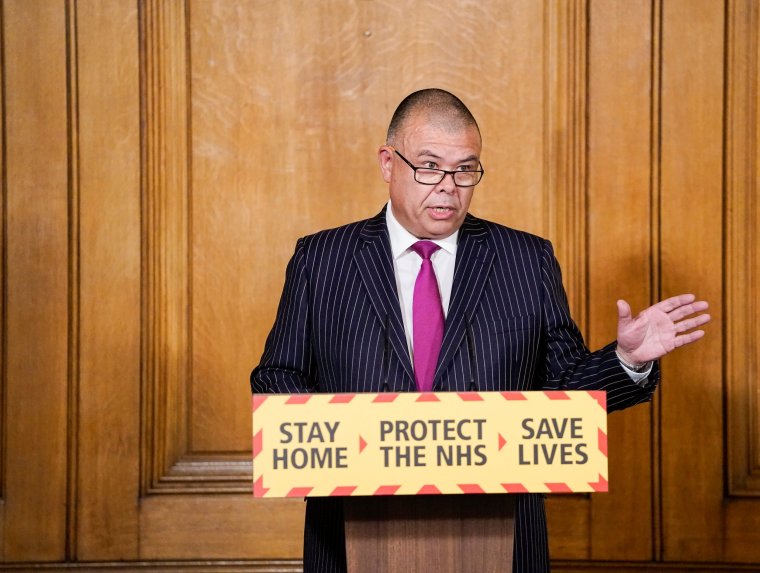
Whitty aware that former PM Boris Johnson ‘wasn’t convinced long Covid truly existed’
Anthony Metzer KC, who was asking questions on behalf of long Covid groups, asked Professor Sir Chris Whitty if he knew of then-prime minister Boris Johnson’s thoughts on the health condition in October 2020.
He asked: “Were you aware that the prime minister wasn’t convinced that long Covid truly existed in 2020 and for a large part of 2021?”
Sir Chris replied: “I was aware of that.”
Mr Metzer continued: “Why didn’t you, as chief medical officer, disabuse the prime minister of his belief that long Covid was bollocks in October 2020, when there were discussions about the need for a second lockdown?”
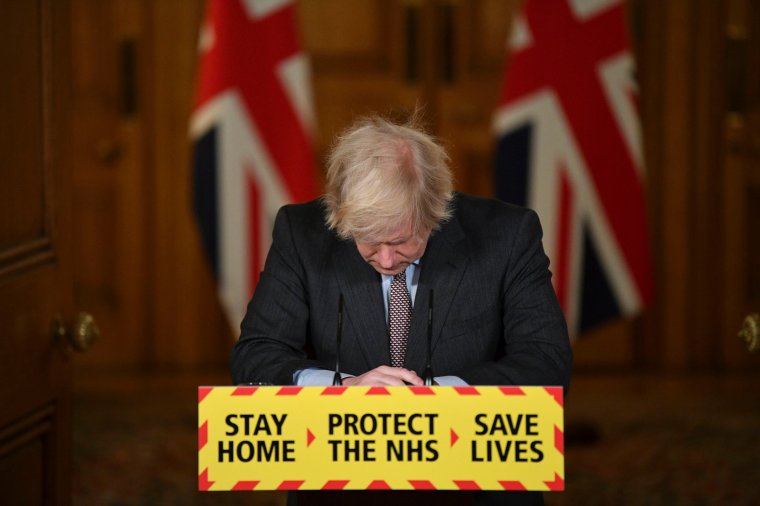
Sir Chris said: “Well, the particular document with a handwritten note was not one I was privy to until it was published by the inquiry.
“So to be clear, the answer is if I thought that there was an overriding need for the prime minister himself, or herself were it to be a different prime minister, to know about this because it was going to make a big difference to people with long Covid, that would have been a very material point.
“And I did, as you know in 2021, actually address issues of long Covid directly with the prime minister.”
Sir Chris added that Mr Johnson’s views on the condition were “irrelevant” to some degree because he was able to launch the research and analysis into the condition without them.
Spotlight was “shone” on public health inequalities during pandemic
Professor Sir Chris Whitty has told the Covid inquiry that the pandemic “shone a spotlight” on places that have public health inequalities.
Leslie Thomas KC, representing the Federation of Ethnic Minority Healthcare Organisations, questioned what contributed to the failures of serving ethnic minority groups during the pandemic.
Sir Chris said while he commissioned a report in March/April 2020 looking at risks for the groups, linguistic issues still arose for people of different ethnic backgrounds in the UK.
He told the inquiry: “Not every major language spoken in the UK was adequately picked up at an early stage in terms of communications”, adding that the Government didn’t pick up early enough that people were getting Covid-19 updates from news outlets in other countries rather than British outlets or Downing Street itself.
“A lot of work was done on this, [there’s] still more I think to learn,” he added.
Sir Chris added that a lot of what drove the differential impact of Covid on ethnic minority groups was underlying socio-economic disadvantage.
“What this also demonstrated is these are people living in communities where other areas of public health are not adequate”, he said. “I think Covid shone a spotlight on some of the areas of the country where we have the greatest need to invest in public health for exactly the reasons you’re giving.”
Wales and Northern Ireland should have been involved in Sage sooner, Whitty says
Professor Sir Chris Whitty has told the Covid inquiry that representatives for Northern Ireland and Wales should have been involved in the Scientific Advisory Group for Emergencies (Sage) meetings earlier in the pandemic than they were.
Kirsten Heaven, who represents the Covid-19 Bereaved Families for Justice Cymru, asked him if criticism in a report that suggested that data was too England-focused was fair.
Sir Chris said: “The simple answer is that the modellers and the data were taken from wherever you could get modellers and data.
“Data flows, even within England, were very problematic, as I think multiple witnesses have said, and I’ll repeat it, they were very problematic, and that was part of the reason we had trouble in first three months.”
He added: “Getting data flows from elsewhere in the UK, also had challenges, so there were actual data acquisition questions.
“The four UK CMOs (chief medical officers) have absolute parity in my view, but data is based on numbers and numerically there are many more people in England and Wales.
“And therefore numerically, the numbers will be larger from England, now as the pandemic progressed we got better and better data from different areas.
“Also, each of the four nations, or at least each of the other three nations other than England, took slightly different approaches to the extent to which they did their own analysis or relied on a UK-wide analysis.”
Covid-19 email published by the inquiry
The email that alerted the UK government to Covid-19 has been published by the Covid inquiry.
The email was sent by Professor Sir Jonathan Van-Tam, then the deputy chief medical officer, to Professor Chris Whitty and officials at the Department of Health, at 11.15am on 3 January 2020.
Sir Jonathan forwarded an alert sent by an international public health alerts system called ProMed, which read “UNDIAGNOSED PNEUMONIA – CHINA (02): (HUBEI) WILDLIFE SALES, MARKET CLOSED, REQUEST FOR INFORMATION”.



Sir Jonathan wrote that Public Health England had received these reports on 31 December 2019, and he was copying it to Prof Whitty and government officials.
Sir Chris replied that the Government needed to take a “close interest” and start “considering risk to the UK” if three triggers were met – healthcare workers dying, evidence of person-to-person transmission and geographical spread “implying a zoonosis [animal-to-human virus]”.
Sir Chris said until those triggers were met “I don’t think we need to go further and leave it with PHE to alert us if the situation changes”.
Whitty: WhatsApp was ‘an appalling mechanism’ for discussing issues
Professor Sir Chris Whitty has said the messaging app WhatsApp was “an appalling mechanism” for discussing technical issues.
He told the Covid-19 inquiry: “We didn’t do very much technical stuff on WhatsApp unless it was extremely straightforward, like there have been three new cases or something of that kind.
“[For] something that has greater scientific subtlety … WhatsApp would be would not be an appropriate approach for trying to do that.”
Asymptomatic transmission not seen as ‘major driver of pandemic’, says Whitty
Pete Weatherby KC, representing Covid Bereaved Families for Justice, asked Sir Chris Whitty whether the impact of asymptomatic Covid transmission was “underplayed” in the early days of the pandemic.
Sir Chris responded that, “At this point we were probably thinking it wasn’t a major driver of pandemic”.
Lockdown went against Johnson’s ‘whole philosophy of life’, Whitty tells inquiry
Imposing a lockdown went against Boris Johnson’s “whole philosophy of life” and yet he still did it because the alternative would have been “incredibly difficult”, Sir Chris Whitty has told the Covid inquiry.
England’s chief medical officer explained the agonising discussions that went on inside Downing Street in the middle of March 2020, as modelling showed that hundreds of thousands of people would die unless drastic action was taken.
Sir Chris said the then prime minister had been warned that without a lockdown the NHS “was going to get to the point where it was no longer able to function in any sense”.
Keep reading here.
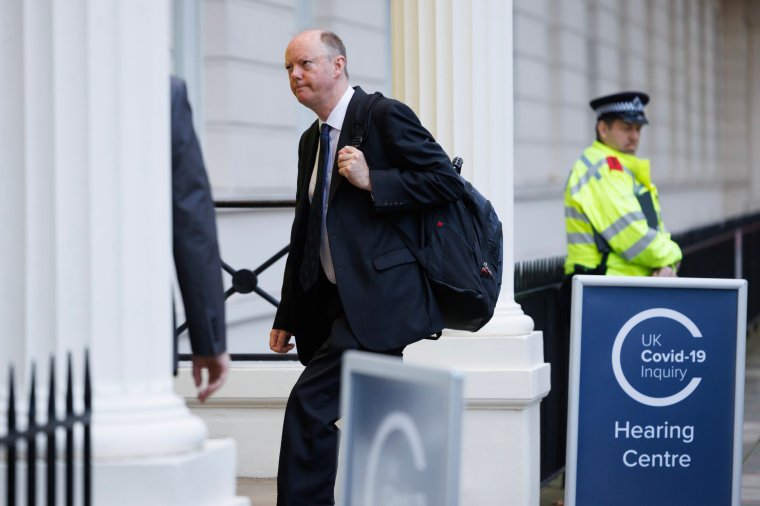
Whitty says he was not consulted about Eat Out to Help Out before scheme launched
The inquiry heard in former prime minister Boris Johnson’s witness statement that the Eat Out to Help Out scheme was “properly discussed” with scientific advisers.
Sir Chris said today that he was not consulted about it, and nor was former chief scientific adviser Sir Patrick Vallance.
“I think we should have been,” he added, “I made fairly firmly to No 10 – not to the prime minister – the view that it would have been prudent […] for them to have thought about discussing it before it was launched.”
Second lockdown may not have been as long if other measures had been introduced earlier, says Whitty
Sir Chris has been asked if a second lockdown might have been avoided, or might not have been so long if there had been a circuit breaker lockdown in September 2020, or if the tier system of restrictions had had longer to work.
He said: “By the time it got to the second lockdown, given the principal aims of ministers to minimise mortality, I couldn’t see many options.
“Whether separate decisions could have been taken earlier to have prevented that, I think is a separate and quite important question.”
He said that he thought “most people would say” it was “the case” that the second lockdown in November 2020 may not have needed to be as it was if measures had been introduced earlier.
However, he added that he did not think that the third lockdown could have been avoided, as it was triggered by the emergence of the Alpha variant, which was much more contagious than the previous dominant strain.

